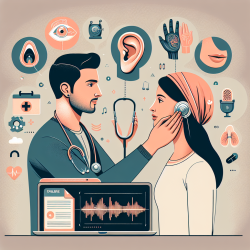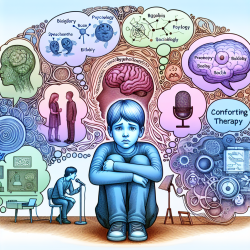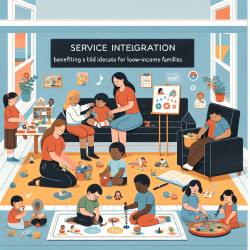Understanding the Importance of Patient-Centeredness in Speech and Hearing Sciences
Patient-centeredness is a pivotal element in the rehabilitation process across allied health professions, including speech-language pathology and audiology. A recent study titled "Preferences to Patient-Centeredness in Pre-Service Speech and Hearing Sciences Students: A Cross-Sectional Study" sheds light on the current state of patient-centered preferences among pre-service students in these fields.
Key Findings from the Study
The study involved 93 pre-service speech and hearing sciences students who completed the Patient-Practitioner Orientation Scale (PPOS). The results revealed a high preference for patient-centeredness, with a mean PPOS score of 4.13. However, a significant difference was noted between the caring and sharing subscales, with lower scores on the caring subscale. This suggests a need for curriculum enhancement to foster improved caring and empathy among students.
Implications for Practitioners
For practitioners in the field, these findings highlight the importance of integrating patient-centered approaches into both educational curricula and clinical practice. Here are some actionable steps to consider:
- Curriculum Development: Incorporate modules that emphasize empathy, caring, and understanding of patient backgrounds and cultures. This can help bridge the gap identified in the caring subscale.
- Professional Development: Engage in workshops and training sessions that focus on patient-centered care and its impact on clinical outcomes.
- Mentorship Programs: Facilitate mentorship opportunities where young professionals can learn from experienced clinicians who exemplify patient-centered care.
Encouraging Further Research
While the study provides valuable insights, it also opens the door for further research. Practitioners and educators are encouraged to explore the following areas:
- Cross-Cultural Comparisons: Investigate how patient-centered preferences vary across different cultural contexts and what can be learned from these differences.
- Longitudinal Studies: Conduct studies that track changes in patient-centered preferences over time and across different stages of professional development.
- Impact of Direct Experience: Examine how direct clinical experience influences the development of empathy and patient-centered attitudes among students.
Conclusion
The study underscores the significance of patient-centeredness in speech and hearing sciences education and practice. By focusing on empathy and caring, practitioners can enhance their clinical effectiveness and improve patient outcomes. For those interested in delving deeper into the research, the original study can be accessed here.










